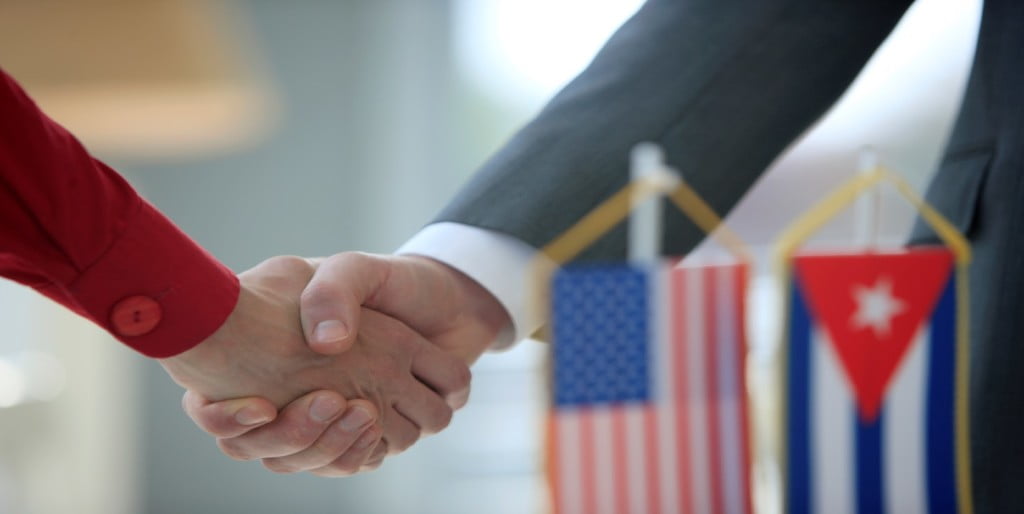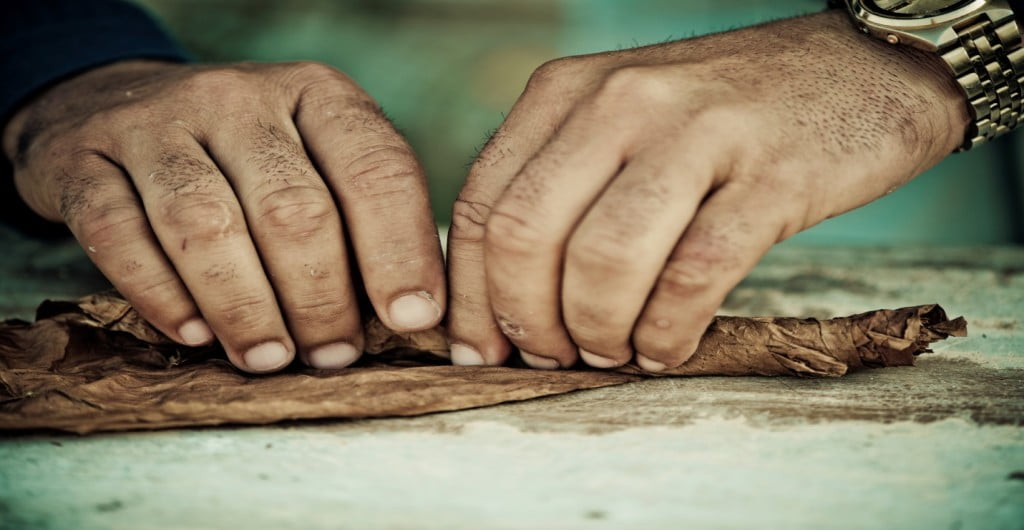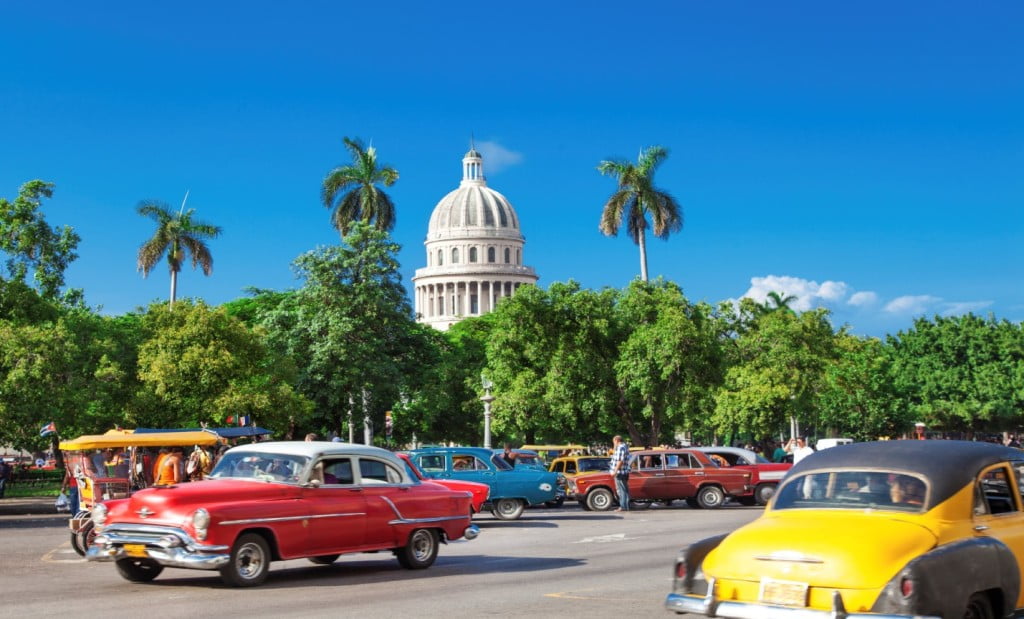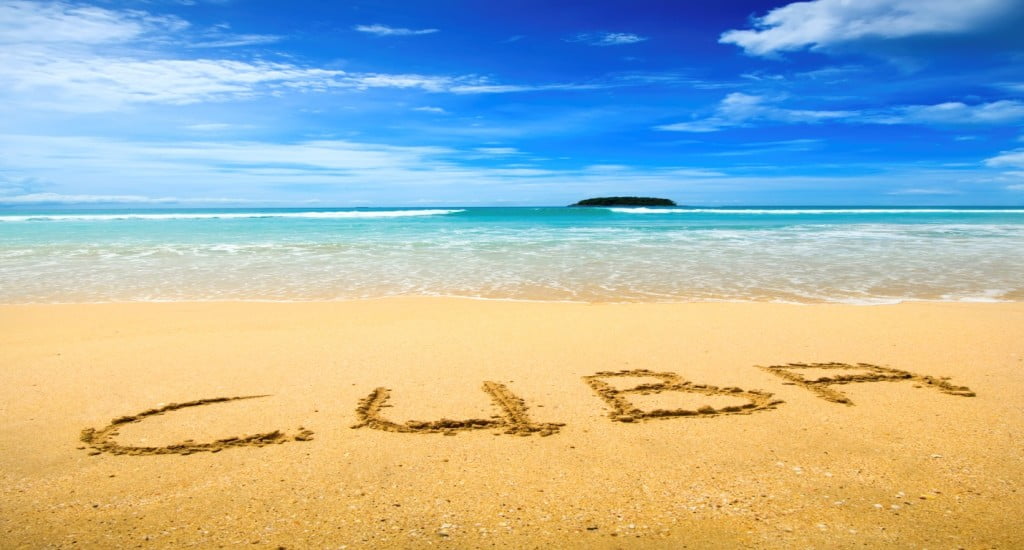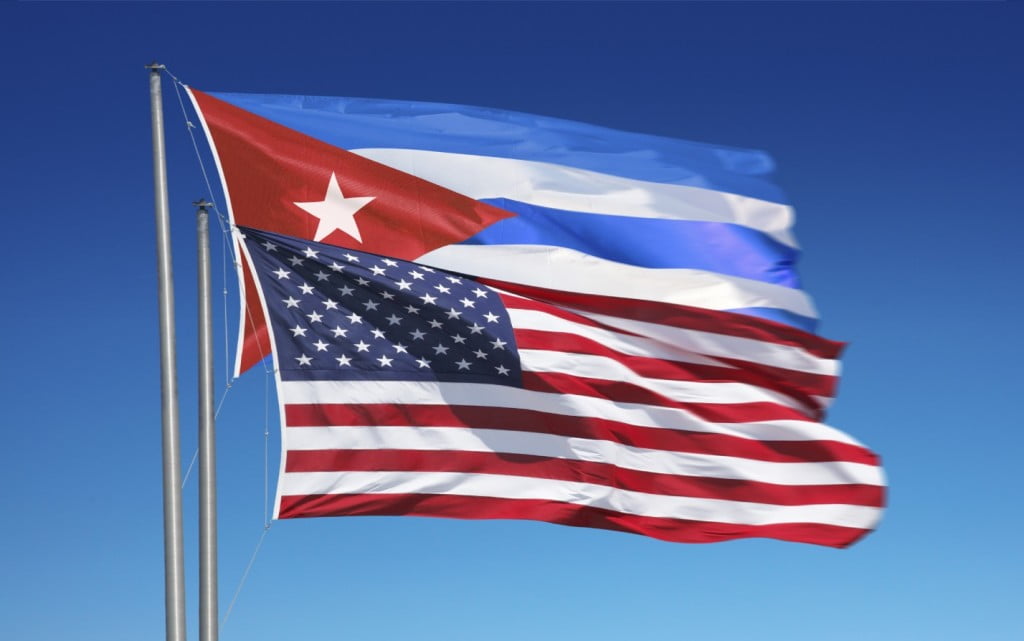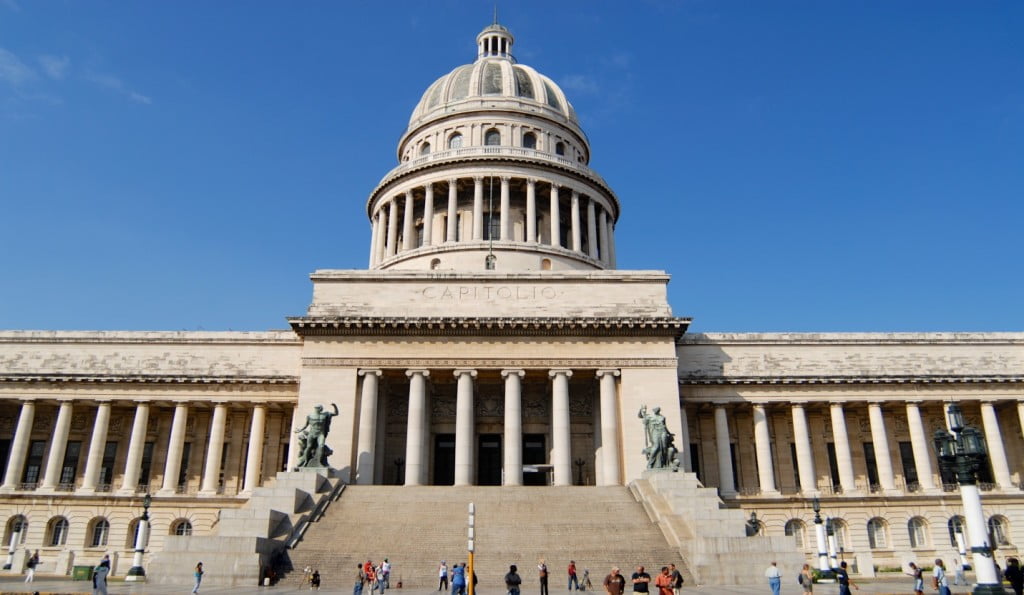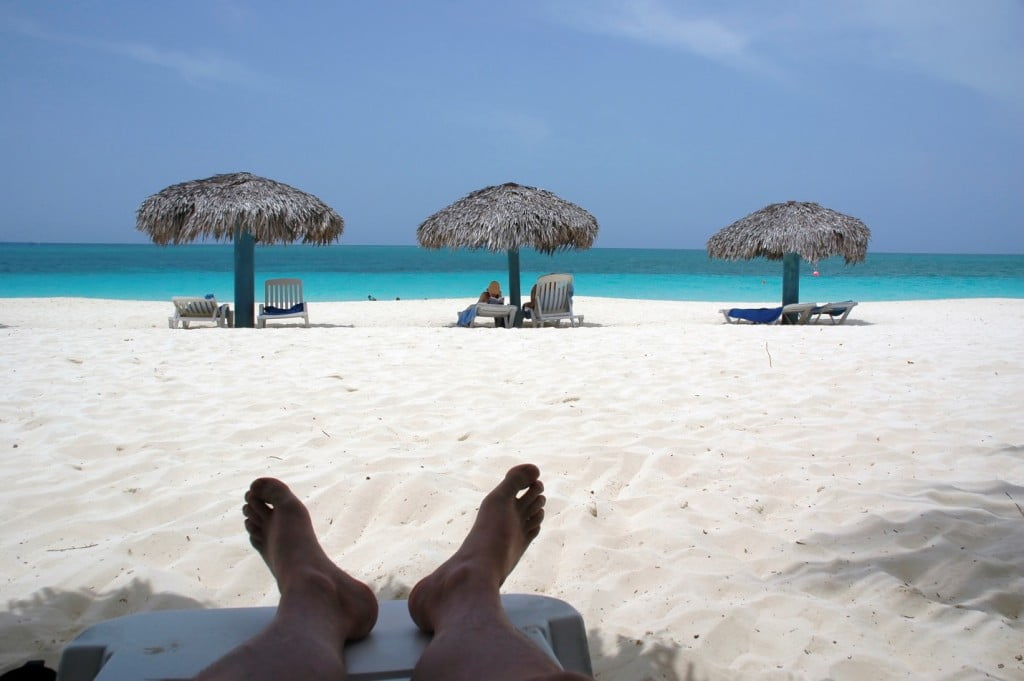Travel to Cuba
The United States has a comprehensive set of trade and travel restrictions in place with Cuba, commonly referred to as the Cuban Embargo. Only specific categories of travel to Cuba are authorized.

U.S. Treasury Department’s Office of Foreign Assets Control
Under this exception, entities are granted permission from the (OFAC) to organize short term professional conferences/meetings, educational and cultural exchange trips to the island. Your trip to the island will take place within this framework, meaning you will participate in a full-time schedule of certain meetings and educational activities with Cubans on the island. EneriVisions is a proud holder of an OFAC license and uses its expertise to facilitate specialized, customized trips to the island. All EneriVisions programs fully comply with OFAC regulations and travelers are required to participate in all scheduled activities. Your trip to the island will take place within this framework, meaning you will participate in a full-time schedule of meetings, educational and cultural activities with Cubans on the island. All EneriVisions programs fully comply with OFAC regulations and travelers are required to participate in all scheduled activities.
Program in Cuba
EneriVisions has wide-ranging contacts with a cross section of Cuban society, including academics, diplomats, business leaders, economists, politicians, religious officials, students and ordinary Cubans from all walks of life. Your customized schedule will allow you to meet with many different Cubans and take part in a number of site visits, activities and discussions. It is our hope that you will make a number of Cuban friends along the way.

Our guests will often be the top experts in their field and we’ll be able to hear a diversity of opinions. No questions or topic is off limits, but we ask travelers to be respectful and gracious in all interactions. All groups will be accompanied and coordinated by a EneriVisions representative and a bilingual Cuban guide. Please keep in mind that EneriVisions will always do its best to maintain the scheduled itinerary, but all activities and events are subject to change. When alterations are made we’ll do everything possible to find suitable alternatives. Please convey your interests and desires to ENERIVISIONS and group leaders before and during your stay. ENERIVISIONS runs trips with specific focus and we look forward to incorporating your desired content in the program. All travelers are required to take part in all scheduled activities. Translation will be readily available to facilitate interaction and maximize your experience. For Spanish speakers, there will be plenty of opportunities to communicate in group settings and one-on-one conversations.
Getting to and from Cuba
Travel to and from Cuba will be on charter flights direct from the United States to Cuba. At this time commercial flights are not authorized, only specialized charters. The check-in process, baggage policies and punctuality differ greatly from commercial airliners and extra steps are required. Check-in begins 3 hours prior to the scheduled departure time and the flight officially closes 1 hour prior to scheduled departure; no exceptions. EneriVisions recommends leaving at least 4 hours between connections upon departing for and returning to Cuba. Pre and post trip overnight stays in Miami/Tampa are optimal when possible. There are not always daily departures and a missed flight can result in significant complications. Travelers are permitted to bring 44 lbs. of total luggage, including checked and carry-on. Fees of $1-2 per pound over the allotted 44 lbs. will be applied. Each piece of checked luggage costs between $20 and $30. When possible, travelers should opt for carry-on only. These fees are paid directly to the charter company and do not involve ENERIVISIONS. The flight is less than 1 hour long. EneriVisions uses charter companies that partner with American Airlines and other major carriers when possible. First class upgrades are available upon request.
Arriving in Cuba

The Cuban government and people open their arms to U.S. visitors. However, it is customary to receive questioning about the motivation for and content of your trip upon arrival to Cuba. On some occasions an immigration official might ask you questions about your stay on the island (e.g. what electronic equipment you are bringing, how much cash you are carrying and who you will meet with).
This is standard and you should not be concerned – it’s part of the experience. Please be transparent and feel free to show them a copy of your program.
Returning to the U.S.
When you return to the United States you will fill out the immigration and customs paperwork as if you were returning from any other country in the world.
The Embargo actually prohibits travelers from bringing anything back from Cuba. The one exception: art and informational materials. However you can bring back rum and cigars so far as value is under $100.00 each. Total value of all goods should not exceed $400.00 Officials in Miami/Tampa rarely harass travelers returning from Cuba like they did 10 years ago. Any piece of art or handmade good is fair game to bring back, and you will have ample opportunity to do some shopping. Art work, music, books, posters, postcards, photos, trinkets and even some clothing is fine to buy and bring home.

Cellphones/Internet
Your U.S. cellphone will not work once you are on the ground. If someone needs to contact you they will want to call EneriVisions’s Cuban cellphone. You will receive contact information for your hotels/ residencies prior to trip departure. If you’re interested in having a personal cell phone we can arrange a rental for $10 per day. All major hotels will have internet access that runs somewhere between 6 and 10 CUC an hour. Some hotels have WIFI options in the lobby and rooms. For wireless or the stationary computers you have to buy a card at the front desk or business center that will give you an access code.
Note: the internet in Cuba is slow and unreliable. Please head into your stay with the understanding that communication will be difficult.
Money
U.S. credit cards and ATM cards will not work in Cuba. There are very few places that accept traveler’s checks. Credit and ATM cards from Europe, Canada and countries other than the U.S. will work, but ATM machines and establishments that accept credit cards are not always accessible. Plan on bringing enough cash for your whole stay. If you can bring newer $50 and $100 bills that is preferable, as sometimes it can be harder to change small bills, and worn and torn bank notes will not be accepted.

There are two currencies (CUC and CUP). The exchange rate is complicated and all you really need to worry about is the CUC. You can get the other Cuban pesos (CUP, commonly referred to as moneda nacional) as a collector’s item but most things you will want to spend money on require CUC. The official exchange rate for dollars is .873. For $100 USD you will receive 87.30 CUC. There is an extra 10 percent tax on USD that Euros, CAD and other currencies do not receive. However, by the time you pay an exchange fee and receive the poor rate that most banks and exchange houses offer, you won’t save any significant amount of money by converting your U.S. dollars into another currency prior to the trip. It’s usually not worth the hassle.
Tipping
Tipping in the service/tourist industry is expected and appreciated. Government salaries are low and many people survive on the tips they earn. It is true that the average salary in the state sector is $20 per month. It is a myth that people survive on only $20 per month and therefore $5 is a lot to them. Average income, which is the result of tips, work on the side, remittances, black market activity and other ways of “getting by,” as Cubans say, is closer to $100-150 per month. You should tip well if you are treated well. Leaving a few dollars a day for maids, 10 percent on meals and a dollar or two for bellman goes a long way. Please check your sales agreement and inquire with ENERIVISIONS about whether tips at meals are included in your package price. Tips for bellman, maids and others are not included and 1-2 pesos or dollars are sufficient. Tour guides are highly specialized in what they do and we suggest $7-9 per day per person for the guide and $4-6 per day per person for the bus driver. Please check your sales agreement and inquire with ENERIVISIONS about commissions.
Electrical Outlets
Cuba generally has electric outlets that are 110 V or 220 V. Many of the places you will stay will have access to both. Some bed and breakfasts and hotels do not have outlets for three-prong cords, common for computers. It’s recommended that you bring a converter to deal with 220 V electricity and Cuban plugs. Although blackouts are less frequent, it is common to be without electricity for short periods of time during your stay. Most hotels will have generators.
Weather
Cuba is a tropical island with a climate typical to the Caribbean region. It can be extremely warm at times and the sun is strong. Showers are common throughout the year, although more common during the Spring, late Summer and early Fall. Please be sure to check the weather prior to your trip departure and also see the section with suggestions on clothes and accessories for your packing list. Temperatures below are listed in Fahrenheit and are estimates only. Fall and Spring: October, November, March, April and May The temperature varies greatly in the Spring and Fall, with showers and heat waves common. It’s likely to be in the high 80s or low 90s during the day and in the mid to high 70s in the evening. Please pack clothes and accessories that take into account the strong sun, heavy heat and the possibility of rain. Winter: December, January and February During the winter months it usually reaches the low-80s during the day and can drop as low as the mid-50s in the evening. Rain is not uncommon and most evenings are breezy. Please pack at least one sweatshirt or light jacket for cold evenings and bring an umbrella, as well as clothes and accessories for the sun and heat. Summer: June, July, August, September The summer months in Cuba tend to be extremely warm, with strong sun and occasional showers. Temperatures during the day often reach the mid to high 90s and the average temperature in the evenings is in the high 70s or low 80s. Please pack clothes and accessories that take into account the strong sun, heavy heat and the possibility of rain.
Clothing and Accessories
Despite low salaries and difficult living conditions, Cubans take pride in dressing well when they can. Shorts, skirts, short-sleeved shirts, and open toed shoes and flip flops are appropriate almost anywhere during the day and at many places at night. Some restaurants and nightclubs prefer or require more formal attire, and depending on your final program, you may want to bring clothes for formal meetings and/or a night on the town. Formal meetings at embassies and/or with experts and academics require business casual clothing. There may be time for nature walks and hiking, but no part of the official schedule will require intense physical activity. When in the countryside it is advisable to use bug spray and wear long pants during outdoor excursions. Taking into account the diverse weather in Cuba, we recommend packing:
- Comfortable clothing
- Dress clothes for several fancy dinners and meetings
- Sneakers or comfortable Shoes
- Sunglasses
- Cap for the sun
- Sunscreen
- Light raincoat, slicker or poncho
- Umbrella
- Light backpack
- Bug Spray
Crime and Safety
Cuba is one of the safest countries in Latin America. Part of the beauty of visiting the island nation is being able to walk freely without worrying about violent crime. However, petty theft does occur and precaution should be taken – especially in Havana and at night. Try to avoid dark streets and never leave purses, bags and other valuables unattended.

Many Cubans, especially in Old Havana, will approach you to try and sell you black market cigars, ask you to buy milk for their children or try to bring you to a paladar (restaurant), for which they will earn a percentage of any money you spend there. Most of them are harmless, but keep in mind they’re often trying to make a few dollars off interacting with you and will have all kinds of creative tales and “special offers” for doing so. The streets of Havana and sidewalks are very poorly lit and, in many cases, crumbling and littered with pot holes. Take extra precaution at night keeping a close eye on the ground below to avoid tripping in the frequent ditches and uncovered drains. Waste from stray dogs in also commonplace.
Health Issues
All travelers are covered with full medical insurance, which is included in your charter ticket from Miami to Cuba. You will receive this information at check-in in Miami and it will be part of your briefing with ENERIVISIONS and Havana Tur staff upon arrival in Cuba.
The most common ailments for travelers in Cuba are indigestion, diarrhea and other stomach problems. Dengue Fever, spread through mosquito bites, is also a problem and precautions should be taken. No pre-trip shots are needed.
- Pack Imodium, Pepto-Bismol and other stomach medicine
- Pack cold medicine and medication for other common health issues
- Do not drink water from the tap
- Do not drink unsealed juices/refreshments from street vendors
- Use bug spray
All major hotels have doctors on call and each city has a hospital designated for foreigners. Please advise your ENERIVISIONS escort and/or local guide in the event that someone is not feeling well. Please make sure to notify ENERIVISIONS of any allergies, medical conditions and other health issues prior to the trip.
Food
Cuban cuisine heavily features rice, beans, chicken and pork. Ample sea food is available as well. The 1990s were plagued by shortages, which affected the accessibility and quality of food, both at home and in restaurants. However, an economic recovery and recent reforms have led to an increase in quantity and quality of foodstuffs. Private restaurants, referred to as “paladars,” have opened up across the country. Meals will be at state restaurants and private paladars, often times with a fixed menu with various choices. Please notify ENERIVISIONS and the local guide of any allergies or food requirements prior and during the trip. On free evening and afternoons ENERIVISIONS and local guides are happy to assist in reservations at restaurants of your choice.
Water
Cuba has an outdated water system and tap water is not okay to drink. Even many locals boil and bottle water prior to consuming. Hotels and fine restaurants will use purified water to make ice. Please drink bottled water only and do not drink juices and other drinks if you’re not sure if purified water has been used.
Donations
Cuba is a poor country. Economic difficulties and U.S. restrictions make some products difficult to acquire and many citizens, institutions and community programs are in dire need of certain materials. Donations of clothes, medicine, vitamins, sports equipment and school supplies are much appreciated.
EneriVisions is involved in several specific projects such as micro financing for local entrepreneurs and religious entities. Please let us know if you would like information about specific initiatives and desired donation items.
Trip Insurance
Please be sure to read the terms and conditions in your sales agreement regarding cancellation and refund policies. ENERIVISIONS is required to finalize all reservations 60 days in advance, meaning that refunds are often not available. We recommend purchasing trip cancellation insurance if you think there’s a possibility your plans may change. Options and pricing vary; please contact the companies directly.

Recommended Reading
EneriVisions recommends several books about Cuban history, politics and economics to familiarize travelers with the island:
- Cuba’s New Resolve: Economic Reform and its Implications for U.S. Policy, Collin Laverty
- Cuban Revelations: Behind the Scenes in Havana, Marc Frank
- Cuba: What Everyone Needs to Know, Julia Sweig
- Back Channel to Cuba: The Hidden History of Negotiations between Washington and Havana. William M. LeoGrande and Peter Kornbluh
- The Cuba Wars: Fidel Castro, the United States, and the Next Revolution, Daniel Erickson
- Havana Nocturne: How the Mob Owned Cuba and Then Lost It to the Revolution, TJ English
- Moon Cuba Travel Guide, Christopher Baker


